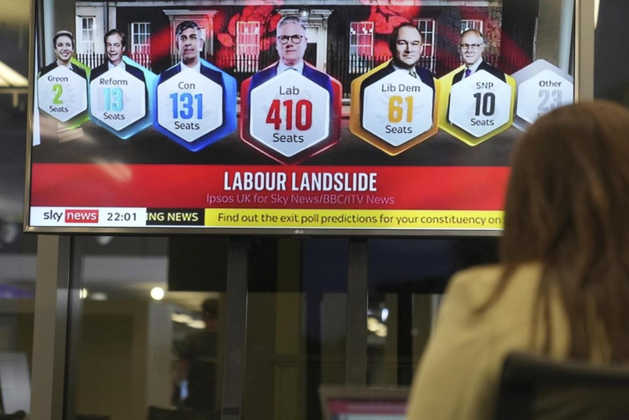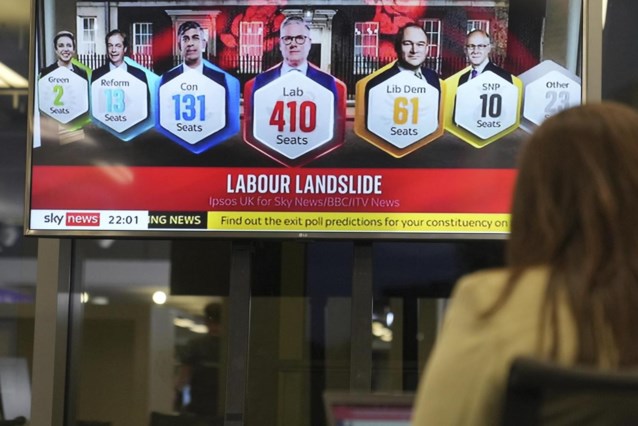Unfortunately, this possibility conflicts with European law, which stipulates for all EU Member States that the central bank is independent from politics and monetary financing of government deficits is not allowed. So in a theoretical scenario where a country leaves the EMU, but remains a member of the EU, the exit of the euro leaves little room for more expansionary monetary policy.
If the NF depreciates against the euro soon after its introduction, as might be expected, Franconia’s euro-denominated debt as a percentage of GDP will naturally increase. Once the euro is out, Franconia will want to pay interest and repay its government’s debt in NF. After all, NF is the new legal tender there. For holders of foreign public debt in Franconia, this means that they will soon have to incur heavy losses. It can be expected that they will not take that for granted and will demand payment in euros through legal proceedings. After all, most of the debt issued falls under European, or even British, law.
If the Franconia government were forced to fulfill its obligations in euros, as stated, it would see a sharp increase in its debt obligations, which are expressed in the national currency of NF. And then the country and government of Franconia will run into payment problems more quickly than if it had remained in the eurozone. It is therefore clear that there will be years of proceedings against the Franconia government and foreign investors will avoid new government debt in NF. Separately, each rating agency will pay in a different currency than agreed upon as so-called credit events resulting in an acute loss of creditworthiness. The population of Franconia will almost certainly lose access to capital markets. A weak currency and persistent monetary financing can lead to structurally high inflation.
The problem is not limited to Franconia’s public debt. The private sector will also face major challenges. In particular, Franconia-based companies that finance themselves in euros on financial markets by issuing negotiable notes or by taking out loans from foreign banks can run into problems. They also face the dilemma of whether they want to pay off their debts, such as loans and bonds, in euros or in NF once the euros are out. The legal chaos was evident. If they chose the former, their financial position would immediately plummet. After all, their income was mostly denominated in NF and their expenses, expressed in NF, immediately increased markedly. Not only the Franconia government, but also the larger business community, which did not have major financial problems prior to the exit of the euro, will soon be in financial trouble. The same applies to banks established in Franconia. Conversely, if they choose to pay off their foreign obligations in NFs, then they can also expect mass claims from foreign creditors. This was a massive default by residents of Franconia, which resulted in a sharp downgrade of the credit rating. Overall, not a very happy prospect.
Franconia residents with euro-denominated assets in other Eurozone Member States are at first glance the only ones to benefit from a euro exit. After all, expressed in NF, the value of their foreign assets increases. However, they bear corporate risks and eurozone based investors will try to seize these assets to compensate for their losses in Franconia. If Frankenlanders with assets in the eurozone were not the same entity as Frankenlanders with debt, this would not have been possible out of the blue. But companies that default on their euro-denominated debts are at significant risk of having their euro-denominated foreign assets confiscated.
The only people who really benefit from the euro’s exit are the residents of Franconia, who mostly keep their wealth in euro notes. After all, the purchasing power of the domestic euro in Franconia is increasing rapidly.
Scenario 2: exit of the euro from a member country with a strong economy
This scenario is about Markenland, a country with a strong economy. It has a large surplus on its current balance of payments, which for decades has led to a strong and positive international net asset position. As with Franconia in the previous scenario, this net asset position comprises much larger gross assets and liabilities. Markenland doesn’t want to abandon the euro to restore its competitive position as it is already strong enough, as evidenced by its large surplus in current transactions. Markenland wants to leave the euro because it no longer feels at home in the eurozone. He believes that too many other Member States do not comply with the policy agreements made and he also believes that too often they have to pay the costs incurred by other countries. It also wants to regain its monetary autonomy, believing that the ECB’s monetary policy caters too much to weak member states and, according to Markenland, is too lenient.

“Hipster-friendly creator. Music guru. Proud student. Bacon buff. Avid web lover. Social media specialist. Gamer.”







